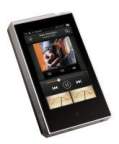- home Forum
- arrow_forward
- Support
- arrow_forward
- Triton Series
- arrow_forward
- Spikes or no spikes (carpet / pad over concrete)
 Spikes or no spikes (carpet / pad over concrete)
Spikes or no spikes (carpet / pad over concrete)
-
Offline
- Platinum Member
-

- rjohn79395
- Posts: 2410
- Thank you received: 4322
- Karma: 2
- arrow_drop_downMore arrow_drop_upLess
First, I totally trust Moderator Dude's experience with spikes and what they do for GEt speakers, so I will definitely try spikes when I install the T Ref's.
But like most audiophile subjects, there's lots of conflicting opinions.
I think I have a rudimentary understanding of what power cords do (surge capability of larger gauge, digital noise supression), what upgraded speaker cables and interconnects do (better signal transmission, less noise), what system warm up may do (electrical equilibrium). But when I Google what speaker spikes do, I get a lot of the same conflicting opinions as with lots of other audio subjects. Do spikes make for better speaker stability/less stray vibration? Some sites say yes, others say no, that rubber feet damp vibration better. I can visualize how spikes provide better stability on carpeted surfaces. But on hard surfaces (my wood floors are above a concrete slab), what do spikes do vs. rubber feet that certainly damp vibration transmission?
I'm all for what folks HEAR, vs. what theory says we ought to hear.
SO, what experiences do we have represented here? Spikes on hard surfaces, spikes on stable wood floors, spikes on carpeted surfaces. What are the experiences on various surfaces of spike use?
Happy listening and experiencing!
Rick
Zone 2 speakers; 2 Invisa 525's
AVR: Marantz SR 8015
Amp: AT525NC 5 channel
Cable/TiVo, OPPO BDP 105D, Bluesound Node 2i, Apple tv 4K streamer
48" SONY 4K OLED TV
Please Log in or Create an account to join the conversation.
-
 Offline
Offline
- Platinum Member
-

- arrow_drop_downMore arrow_drop_upLess
rjohn79395 wrote: Man, this subject of whether to spike or not to spike is every bit as complicated as whether to use better power cords, better speaker cables or interconnects, warm up a system......
............SO, what experiences do we have represented here? Spikes on hard surfaces, spikes on stable wood floors, spikes on carpeted surfaces. What are the experiences on various surfaces of spike use?....
Rick
Hi Rick. I'll take a stab at your question. First, best of luck with the Reference and I'm sure you will quickly realize you made the right choice. To the spikes, I have a carpeted surface (berber carpet, which I think is relevant because although it is not thick, it is dense) and use the spikes. My rationale for using them instead of the rubber feet is only to get the theoretical advantage of more vibration isolation. Have I used the rubber feet, yes. Do I hear any difference with the spikes, no. However, I use the spikes for the same reason I use 6 feet of speaker wire instead of 20 feet. Even though I can't hear the difference, I know the 6 foot cable has lower resistance and is therefore *preferred*.
One word of caution if you do decide to use the spikes on hardwood floors. And I know this from an unpleasant experience with the T1s when the spikes were on. I do have wood flooring in my foyer. If the spike comes into direct contact with the floor (wood), it will puncture a hole in it. Point is, while you would be using the disks under the spikes, getting those disks under the spikes without the spike accidentally pearceing the floor could be challenging (and risky if your flooring is expensive, etc.).
Best of luck however which way you choose to go.
halr.x10.mx/TritonReference.htm ; halr.x10.mx/other.html
Please Log in or Create an account to join the conversation.
-
 Offline
Offline
- Platinum Member
-

- Posts: 917
- Thank you received: 1811
- Karma: 1
- arrow_drop_downMore arrow_drop_upLess
The GE Tech Team did inform me that I could order a set of Triton One 4 spikes and 4 discs from my dealer. The suggested MSRP is only $99.99 per set of 4 spikes and 4 discs. So, essentially $200.00 for two sets to handle a pair of speakers.
The Moderator also stated provided other information about using the spikes and possible substitute devices. Please see his earlier post in this thread for further details.
For anyone who might be interested, I have removed a spike from one of my Triton Sevens and made a few measurements. The overall length is just under 1.5 inches. The length of the threaded portion is approximately 0.75 inch. With the lock nut at the end of the threaded portion, there is 0.5 inch of exposed thread to screw into the spike holder on the speaker base.
I plan to visit Home Depot tomorrow and purchase a quantity of eight 1/4 x 20 bolts approximately 1.5 inches long. I will also by a quantity of 1/4 x 20 nuts - enough to place several nuts on each bolt to insure that there is only 0.5 inch of exposed thread on the bolt. I will then replace the spikes on my Sevens with these 8 bolts.
The bolts have flat heads and should serve very well as replacements for the spikes on my tile floors. I expect them to slide easily on their flat heads on my tile floor and create less lateral stress than the spikes. I believe that my entire expenditure will be less than $2.00. I will report results.
Best,
Art
Please Log in or Create an account to join the conversation.
-
 Offline
Offline
- Platinum Member
-

- Posts: 917
- Thank you received: 1811
- Karma: 1
- arrow_drop_downMore arrow_drop_upLess
I visited Home Depot this morning and purchased the following items:
1. Quantity 16 -- 1/4 x 20 round head bolts, 1.5 inches long
2. Quantity 64 - 1/4 nuts
These quantities provided sufficient bolts and nuts to convert the bases of both my Triton Ones and my Triton Sevens.
Total cost: approximately $7.25 including sales tax.
Conversion process:
1. To each bolt I added 4 nuts and screwed the nuts down to the base of each bolt, leaving approximately 1/2 inch of bolt thread exposed.
2. Disconnected leads and wires and placed each speaker on its back.
3. Removed all existing spikes.
4. Screwed replacement bolts into each holder in the base and hand tightened to snug.
5. Returned each speaker to its upright position. Reconnected wires and cables.
Total time to convert all speakers - less than 20 minutes.
I am almost 76 years old and did the job myself with no problems.
The 1/2 inch exposed bolt length was chosen to match the GE spikes maximum penetration into the base.
The round head bolts slide easily on my floors and the speakers are stable.
I now have two sets of Triton Seven and two sets of Triton Ones spikes. GE's MSRP for the Triton One Sets at $99.99 per set. I wonder if GE or my dealer would be interested in buying these spike sets from me?
Addendum:
An easy way to add tilt with use of these bolts: Simply replace the two front 1.5 inch long bolts with 1 inch long bolts. Use just two nuts on the one inch bolt to leave the same 1/2 inch exposed thread section. After mounting, the front two bolts will be 1/2 inch shorter than the back two bolts and the front of the speaker will be 1/2 inch off the floor, while the back of the speaker remains at 1 inch height off the floor. If that amount of tilt is deemed to be too much, then remove one of the four nuts from the back two 1.5 inch long bolts. This action will result in approximately 1/4 inch height differential between the front and back of the speaker.
Regards to all,
Art
Please Log in or Create an account to join the conversation.
-
 Offline
Offline
- Platinum Member
-

- Posts: 4595
- Thank you received: 7040
- Karma: 15
- arrow_drop_downMore arrow_drop_upLess
Bro Art,
That sorta defeats the purpose (sonic advantage) of the spikes.
Just my 2 cents.
I hope it is great for you and you are happy.
God Bless,
Wayne
Please Log in or Create an account to join the conversation.
-
 Offline
Offline
- Platinum Member
-

- Posts: 917
- Thank you received: 1811
- Karma: 1
- arrow_drop_downMore arrow_drop_upLess
Can you enlighten me as to the specific sonic improvement that is unique to the spikes - as opposed to the bolts I am using to elevate the speakers?
Thanks,
Art
Please Log in or Create an account to join the conversation.
- home Forum
- arrow_forward
- Support
- arrow_forward
- Triton Series
- arrow_forward
- Spikes or no spikes (carpet / pad over concrete)
-
-

- Question Regarding SuperCinema 3D Array XL Center ...
- In Support / SuperCinema 3D Array
- by Moderator
- 1 day 19 hours ago
-
-
-

- Rumbling left speaker.
- In Write Your Own Review / Triton Series
- by Moderator
- 1 day 23 hours ago
-
-
-

- Triton Reference
- In Write Your Own Review / Triton Series
- by Moderator
- 3 days 27 minutes ago
-
-
-

- Pair Triton One.Rs for sale $4500 Pennsylvania
- In Marketplace / For Sale/Trade
- by spdemon91
- 5 days 4 hours ago
-
-
-

- Help with repairs - Perth Australia
- In Advanced Topics / Problems and Solutions
- by Helvis
- 5 days 12 hours ago
-
